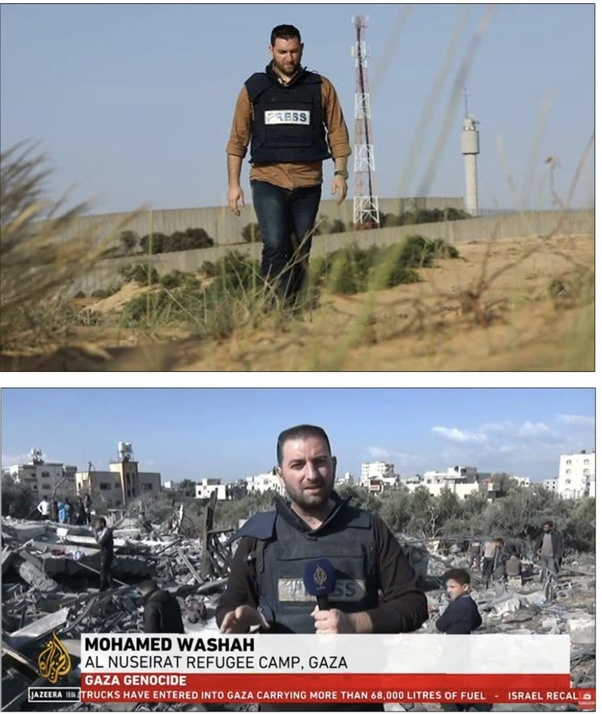Pictures on his laptop show that he was a "journalist" in the morning and a prominent commander of Hamas anti-tank unit in the afternoon.
In a startling revelation, the Israeli Army claims to have discovered a laptop belonging to Al-Jazeera journalist Muhammad Wishah, unraveling a dual identity that has sent shockwaves through the media and security communities.
The laptop reportedly contains a trove of incriminating pictures that suggest Wishah was not just a journalist but also a prominent commander of a Hamas anti-tank unit, blurring the lines between media and military roles.
According to the Israeli Army,
the pictures reveal a stark dichotomy in Wishah's daily activities, portraying
him as a seemingly unbiased "journalist" during the morning hours and
transforming into a commanding figure leading a Hamas anti-tank unit in the
afternoon.
The revelation has ignited debates about the potential intersection of journalism and militancy, raising questions about the credibility and impartiality of journalists operating in conflict zones.
Muhammad Wishah, known for his
work with Al-Jazeera, has been thrust into the spotlight as the Israeli Army
claims the discovered evidence challenges the integrity of his journalistic
pursuits. The images allegedly showcase him in the field, adorned in military
attire, overseeing operations for a Hamas anti-tank unit.
This development has prompted scrutiny of Wishah's journalistic activities and the potential impact on media organizations, especially in the context of their responsibility to ensure that their correspondents adhere to ethical standards and professional conduct.
Al-Jazeera, an international news network based in Qatar, has yet to officially respond to these claims. The incident raises broader questions about the challenges faced by media outlets when vetting and monitoring the activities of their correspondents, particularly in conflict zones where dual roles can have significant implications for the portrayal of events.
International press freedom and
ethics organizations are closely monitoring the situation, calling for a
thorough investigation to ascertain the authenticity of the images and to
determine the extent of Wishah's alleged involvement with Hamas.

As the controversy unfolds, the
journalistic community awaits responses from Al-Jazeera, Muhammad Wishah, and
relevant authorities to shed light on the veracity of these claims and the
potential implications for the intersection of media and conflict in the
region.



Post a Comment